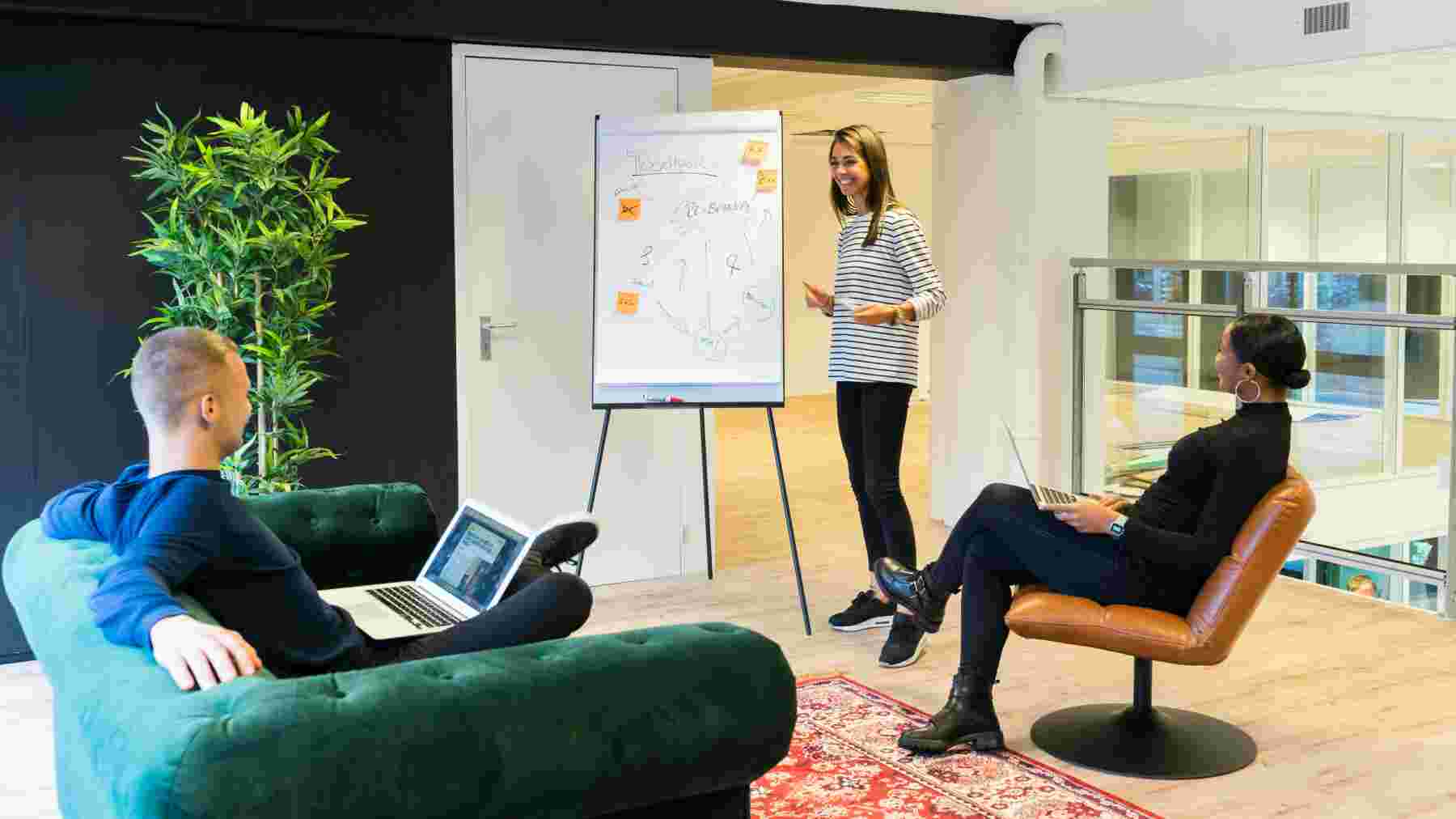


Today, employees return to offices or adopt a hybrid work culture as life returns to normal and COVID-19 restrictions are lifted.
Following a series of lockdowns managed offices and the flexible workspace sector have shown remarkable resilience. The prevailing sentiment is strongly aligned with the wave of entrepreneurship driven by the rise of innovative startups. Since marking its first unicorn in 2011, the Indian startup landscape celebrated its 117th unicorn in 2024. This significant milestone opened new opportunities for co-working and managed office spaces to expand operations. They are now better positioned to meet the rising demand for flexible work environments among corporations and growing startups.
Today, employees return to offices or adopt a hybrid work culture as life returns to normal and COVID-19 restrictions are lifted. Unlike traditional offices, modern workspaces now focus on flexibility. This shift aims to enhance the employee experience for today’s workforce.
Whether it is a designated space for casual discussions, vibrant décor or a wellness area, the millennial demographic and younger workforce seek environments that resonate with their mood and energy and foster mindfulness. These innovative facilities are designed to align with the aspirations and lifestyles of today’s professionals. This makes work a more enjoyable and engaging experience.
Hybrid working, which merges remote work with in-office presence, has become the standard for numerous organisations. This adaptable approach empowers employees to select where and how they prefer to perform their tasks. This leads to an improved balance between their professional and personal lives.
Coworking or managed offices play an essential role in this new landscape. They provide long-term and short-term workspaces, ideal for those seeking a professional environment. This flexibility eliminates the restrictions often found in traditional office settings.
These flexible workspaces foster collaboration and creativity. It also puts forward the necessary amenities to support productivity and well-being. This makes them an attractive option for today’s workforce.
The swift integration of digital innovations has made remote teamwork possible. This serves as a cornerstone for flexible work environments. Solutions such as task management software, video conferencing tools and real-time communication platforms allow teams to remain engaged and efficient, regardless of their physical locations. This shift has prompted a transformation in the requirements for office infrastructure, placing greater importance on dependable connectivity and cutting-edge technologies.
Corporates are now focusing on creating spaces that support seamless collaboration, enhance productivity and accommodate the evolving needs of their workforce.
Emerging generations, particularly Millennials and Generation Z, seek flexibility, independence and well-being in their work environments. These individuals desire spaces that facilitate adaptable working arrangements while offering areas for social interaction and teamwork. In response, organisations are reevaluating their offerings to attract and retain this talent pool by reimagining their workspaces to be more collaborative, motivating, and centred around people.
Managed offices have become a vital solution in this transformation. It provides tailored environments that combine professional amenities with a focus on community and wellness.
Organisations are actively pursuing methods to reduce their real estate expenses while still delivering high-quality working environments for their staff. A significant illustration of this trend can be observed in Bengaluru, where Infosys Ltd, Cognizant Technology Solutions Corp. and Wipro Ltd disclosed a reduction in their real estate footprint last year.
These three companies concluded the previous financial year with a total office area of 103.2 million square feet. This represents a decrease of 3.7% from the 107.25 million square feet reported the year before. This strategic decision highlights a broader movement among leading firms toward optimising workspace usage and adopting more flexible working models.
The collaborative economy, represented by managed office solutions like DevX, enables businesses to rent workspace tailored to their specific requirements. This eliminates the long-term obligations and substantial costs typically securing large office spaces. This financial adaptability appeals to small enterprises and startups prioritising agility and responsiveness in a competitive market.
The increasing demand for flexibility and efficiency primarily fuels the development of flexible workspaces. Organisations that adopt these trends are more effectively positioned to draw in talent, enhance productivity, and stay competitive in a perpetually changing market. Managed offices and other versatile environments will continue to play a pivotal role in this evolution. They provide agile solutions customised to the diverse needs of the modern workforce.
